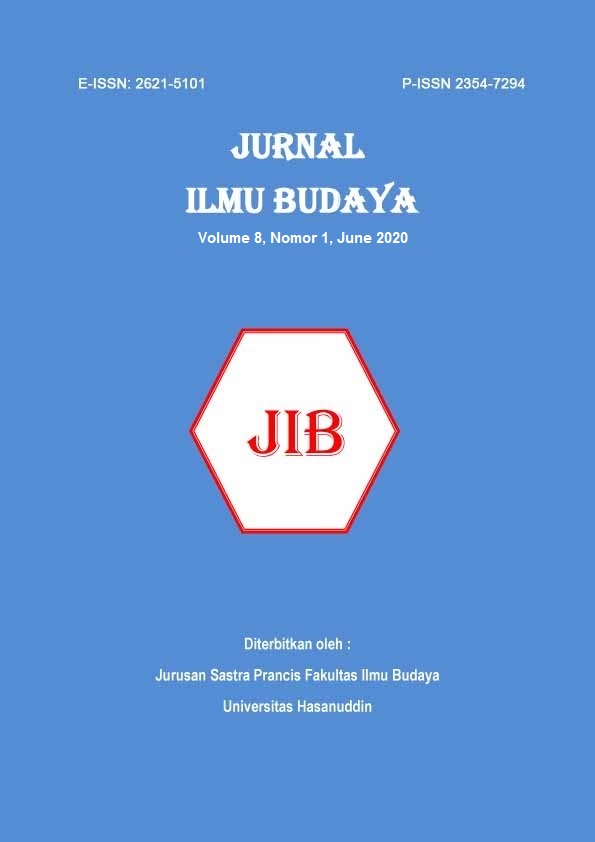THE ANALYSIS OF SOCIAL ASSISTANCE INFLUENCE TO EDUCATION PARTICIPATION IN THE PROGRAM FAMILY HOPE POST-EARTHQUAKE
DOI:
https://doi.org/10.34050/jib.v8i1.8837Keywords:
Social Assistance, Educational Participation, Family Hope ProgramAbstract
Inequality in inhabitants is one of the negative impacts of uneven development that causes poverty. In 2007, the Indonesian government has been striving to accelerate poverty reduction through the Family Hope Program (PKH) with the Conditional Direct Cash Assistance (BLTB) scheme, known internationally as the Cash Conditional Transfer (CCT). All this time, various studies have assessed that the program has succeeded in encouraging the participation of beneficiary families in achieving welfare in Indonesia. However the facts showed that there is an poverty increase in the city of Mataram after earthquake, even though the family hope program runs normally. Therefore, this research was conducted to see the strength of the social assistance influence on one indicator of welfare, education participation after the earthquake. The survey method was used to obtain information on the distribution of 122 KPM PKH respondents in Bertais village, where the location was severely affected. The results showed that the significance of the influence on cash assistance on the level of education participation was 0.775 or 77.5%. Meanwhile, the significance effect of assistance services on the level of education participation was 0.687 or 68.7%. There is a positive influence on the variable of social assistance (dependent) on educational participation and childcare (independent). Thus it can be concluded that the earthquake did not disturb the PKH cycle so much that it did not become one of the factors causing the increase in poverty in the City of Mataram.
References
Alfian. 1980. Kemiskinan Struktural. YIIS dan HIPIS: Jakarta.
Martono, N. 2018. Sosiologi Perubahan Sosial. Cetakan ke 5. PT RajaGrafindo Persada: Depok.
United Nations Development Programme. 2016. Human Development Report. New York: UN Plaza.
Kementerian Sosial Republik Indonesia. 2016-2019. Pedoman Pelaksanaan Program Keluarga Harapan. Jakarta: Direktorat Jaminan Sosial Keluarga.
International Social Security Association. 2016. Impact of Cash Conditional Transfer: The Socio-Economic Impact of Social Security. Maastricht: UNU-MERIT.
Ritzer, G. 2007. Teori Sosiologi Modern. Jakarta: Prenada Media.
Ritzer, G. 2014. Teori Sosiologi: Dari Sosiologi Klasik Sampai Perkembangan Terakhir Postmodern. Cetakan II. Pustaka Pelajar: Yogyakarta.
Bambang Widianto. 2014. Perkembangan resertifikasi pkh: resertifikasi pkh kohor 2007 dan kohor 2008 serta sinergi antar program tim national percepatan penanggulangan kemiskinan (Rapat sinergi program penanggulangan kemiskinan-komplementaritas PKH graduasi). TNPK: Jakarta.
Creswell, J.W. 2018. Research Design: Qualitative, Quantitative, and Mixed Methods Approaches. Cetakan III. Pustaka Pelajar: Yogyakarta.
Sugiyono. 2001. Metode Penelitian. Bandung: Alfabeta.
Slamet, Y.,1993. Analisis Kuantitatif Untuk Data Sosial. Solo : Dabara Publisher
Sukardi. 2008. Metodologi Penelitian Pendidikan, Kompetensi dan Praktiknya. Jakarta : PT. Bumi Aksara.
Ach. Wazir Ws., et al., ed. (1999). Panduan Penguatan Manejemen Lembaga Swadaya Masyarakat. Jakarta: Sekretariat Bina Desa dengan dukungan AusAID melalui Indonesia HIV/AIDS and STD Prevention and Care Project.
Siti Irene Astuti D. 2009. Desentralisasi dan Partisipasi dalam Pendidikan. Yogyakarta: UNY.
Adi, Isbandi Rukminto. 2007. Perencanaan partisipatoris berbasis aset komunitas: dari pemikiran menuju penerapan. Depok: FISIP UI. Press.
Mikkelsen, Britha. 1999. Metode Penelitian Partisipatoris dan Upaya Upaya Pemberdayaan. (Penerjemah: Matheos Nalle). Yayasan Obor Indonesia, Jakarta.
Downloads
Published
Issue
Section
License
Copyright (c) 2020 JURNAL ILMU BUDAYA

This work is licensed under a Creative Commons Attribution-NonCommercial 4.0 International License.


